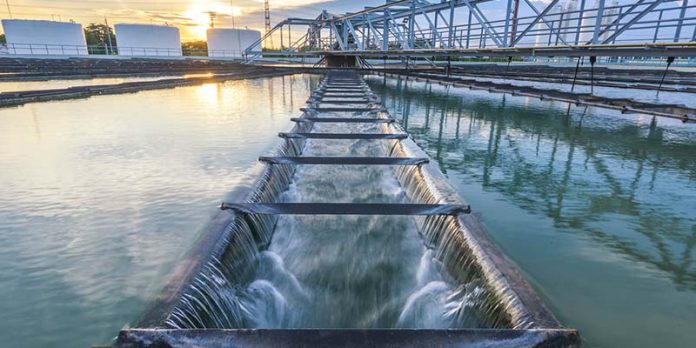The way the world generates, distributes, stores, buys and consumes energy is changing faster than ever before. The transition towards a ‘greener’ power grid with increased penetration of renewables is being driven by the net zero and sustainability agendas, both on national and business levels. For water treatment companies, limiting their carbon footprint and becoming more sustainable is not a question of if, but how soon they can do this, and what cost would it incur.
Ofwat’s next price review for water and sewerage services, planned for 2024, is expected to put a strong focus on the sector’s environmental responsibility and operational resilience. As the grid decarbonises and integrates more renewable energy from volatile, weather dependent sources, industrial, commercial, utility businesses and other large energy customers are required to play a more active role in the energy markets to support grid stability and limit the risk of blackouts.
To increase energy network resilience to fluctuating supply levels and changes in the demand patterns, caused, for instance, by the increased number of electric vehicles on our roads, National Grid incentivises energy-intensive businesses to provide energy flexibility through their participation in grid balancing services. For water sector companies, the pressure to limit their carbon footprint is further exacerbated by the growing pressure from customers and investors.
Stricter emission limits, changes to carbon reporting requirements, and the complexity of the energy markets are causing widespread concern across all sectors of the economy, and the water industry is no exception. With the price review just around the corner, there has never been a better time for water and sewerage businesses to review their current energy strategy and look for innovative technologies and new opportunities in the energy markets.
Holistic energy strategy powered by AI
“The development of a holistic energy strategy for water treatment companies starts with the assets and the potential flexibility in their energy consumption,” says Mark Davis, Managing Director at GridBeyond, a provider of intelligent energy technology for industrial and commercial businesses.
“Assets commonly used by water treatment businesses such as inlet, outfall, interstage and foul pumps, as well as various types of blowers have typically high level of energy flexibility. Together with on-site generation such as CHP and battery storage, they are ideally positioned to participate in grid balancing services and benefit the business with additional revenue streams, while simultaneously increasing resilience to both power shortages and price volatility”, Mark continued.
In the context of energy, flexibility is defined as the difference between the highest and lowest amount of energy an asset can consume while working as intended without any impact on operational integrity. By identifying the flexibility of equipment and connecting it to an intelligent energy platform, such as AI-powered GridBeyond’s Point platform, businesses can participate in energy services like demand response.
Demand response programmes help National Grid to balance supply and demand on the energy network. For example, if the forecast for wind generation is higher than that delivered, and supply cannot meet demand, large energy users are called upon to turn down their consumption. This creates opportunities for energy-intensive water treatment businesses, as their flexibility to turn down at crucial times is financially incentivised. By monetising flexibility through National Grid’s programmes, water companies can gain quick access to new, long-term revenue streams to protect their bottom line, increase savings and enhance sustainability.
Beyond passive energy consumption
Traditionally, businesses preferred to contract the purchase of their electricity for the long term and with a fixed price. But as the energy transition advances, bringing new environmental charges and increasing price volatility, sticking with the old way of buying energy can put your business behind more tech-savvy competitors.
New technologies, such as GridBeyond’s Point platform, combines AI-powered smart forecasts, volatility analysis, trading limits, models and decision algorithms that enable large energy users to better manage their costs through participation in shorter term traded markets – buying energy at its cheapest and selling back to the grid when the price rises. All without any impact on operations and within strict risk limits specified by the customer.
But the benefits of AI technologies do not stop there. Thanks to intelligent energy management strategies based on machine learning, big data analysis and benchmarking, businesses can optimise their performance, improve energy efficiency and reduce costs further through automation and predictive maintenance. The latter is particularly important for mission critical businesses such as those in the water and sewerage sector, for whom any equipment failure or operational malfunction can have devastating environmental and financial consequences.
As water companies work towards a carbon-neutral future and to meet the demands of the upcoming Ofwat price review, innovation and cost-saving are high on the agenda.
This is why, GridBeyond, a global leader in intelligent energy management, will run a free educational webinar on the 9th of September at 11 am, with a specific focus on the needs of the water treatment businesses.
The CPD accredited webinar will outline how the water sector can use new AI-powered energy technologies to meet emissions reporting standards without impacting operations, increase resilience with on-site battery storage, and generate new revenues and savings through participation in grid balancing services and energy trading.
What: Unlocking a Net Zero Future. Energy and Carbon Reduction, Resilience, and Reporting for the Water Industry
When: Thursday, 9th September at 11am
Where: Virtual, claim your free place https://gridbeyond.com/lp/webinar-unlocking-a-net-zero-future-energy-and-carbon-reduction-resilience-and-reporting-for-the-water-industry/
Following the webinar, anyone interested in participating in balancing services, energy optimisation and trading programmes will be eligible for a free, no obligation, on-site feasibility audit.





